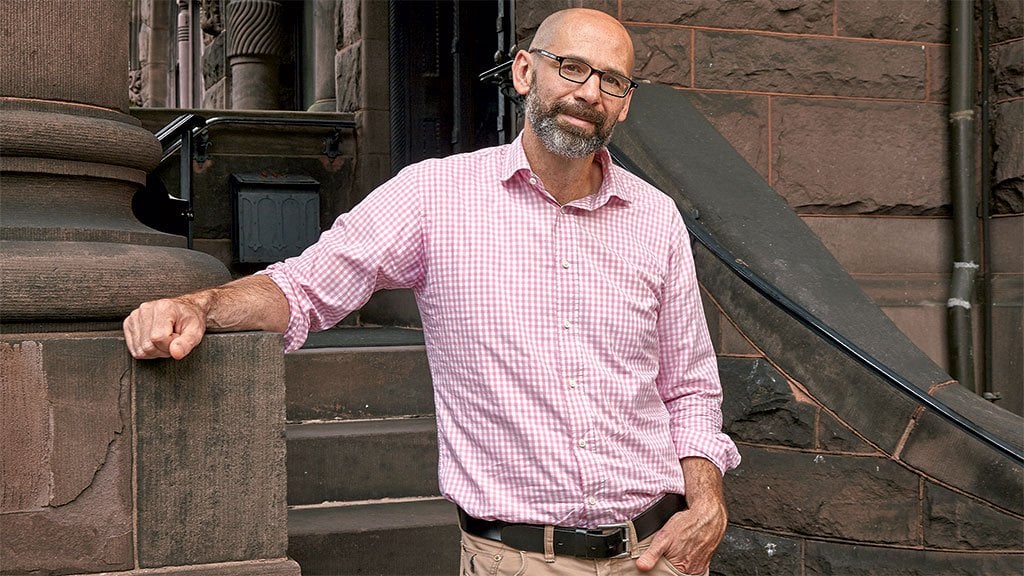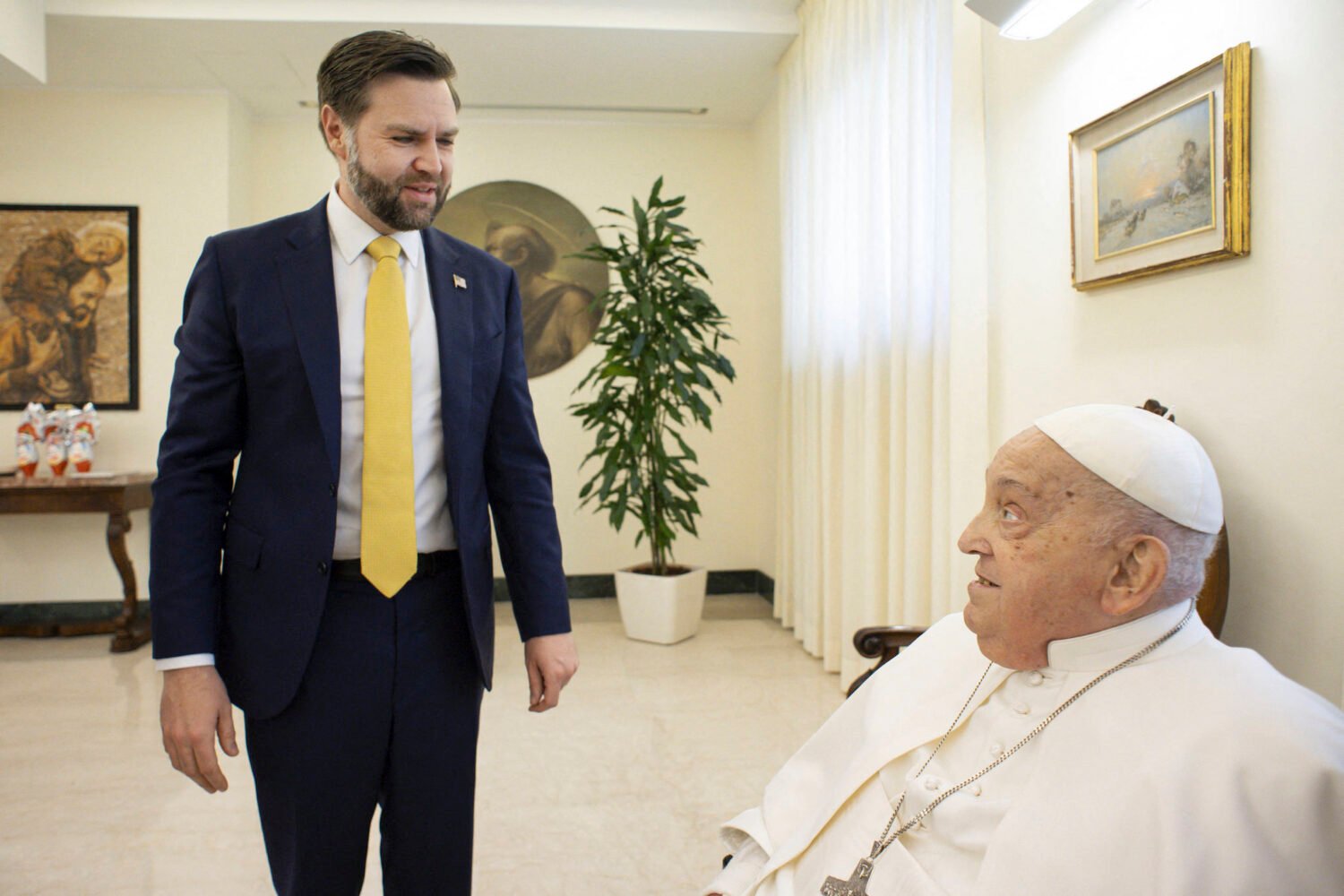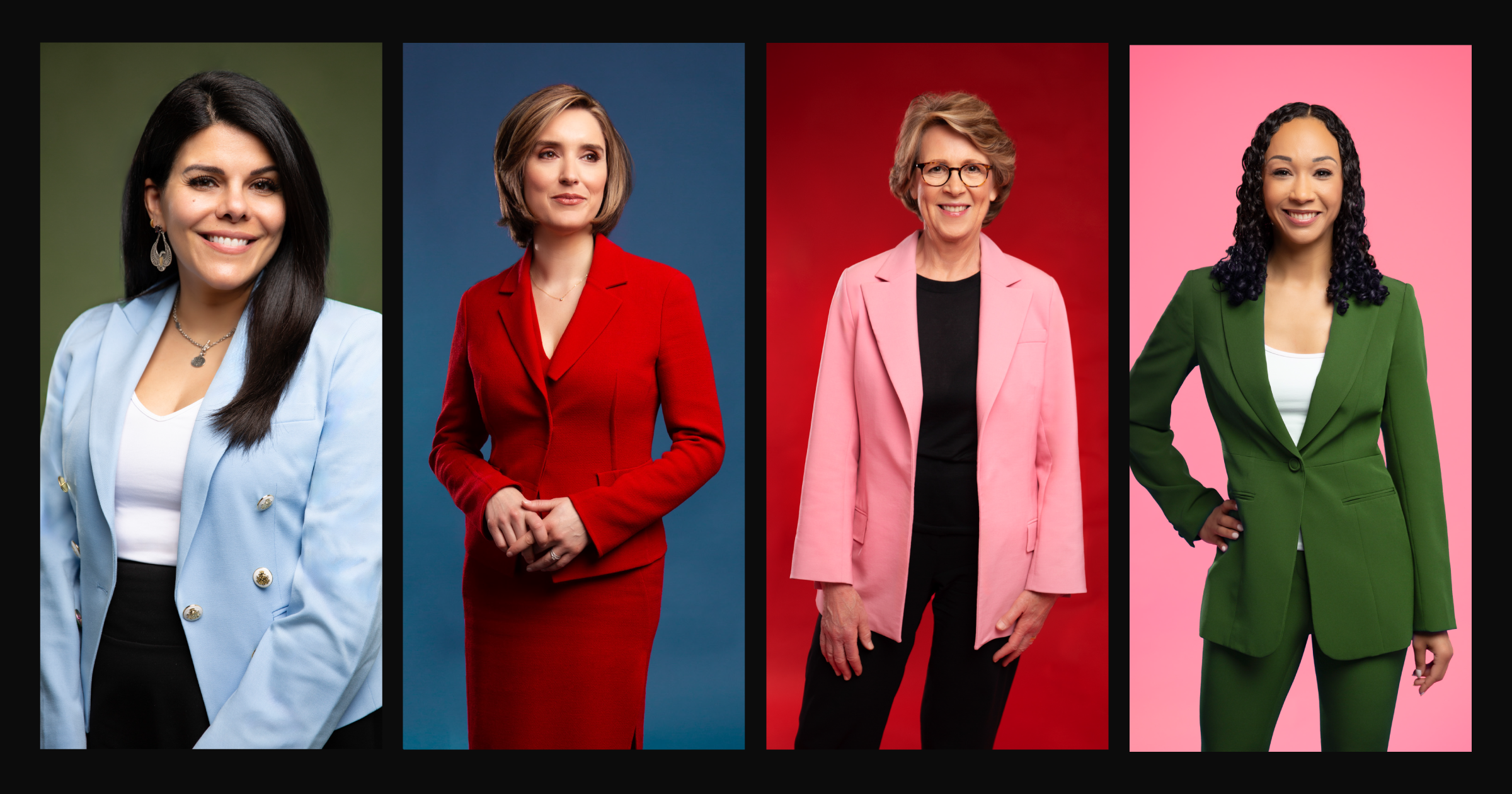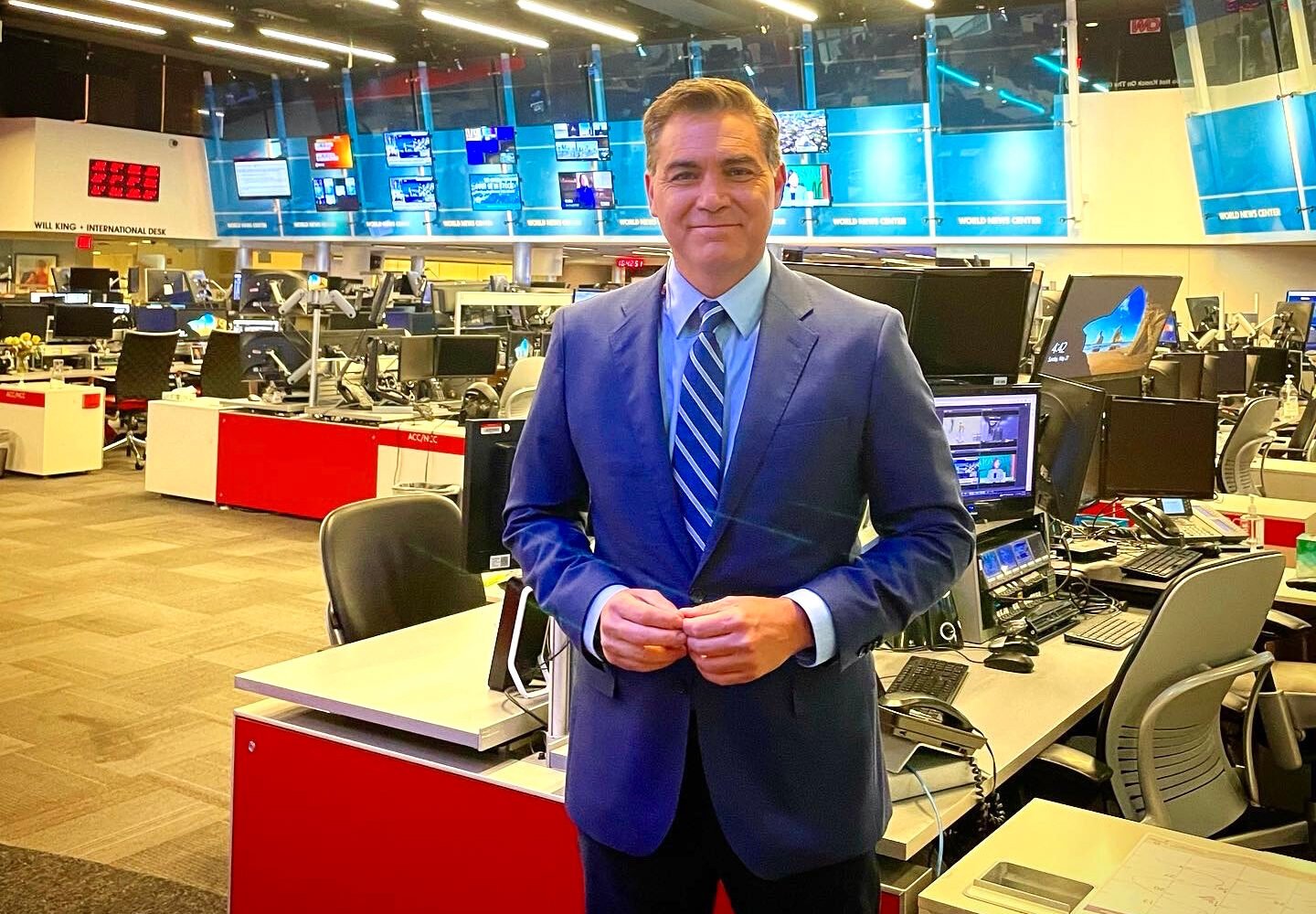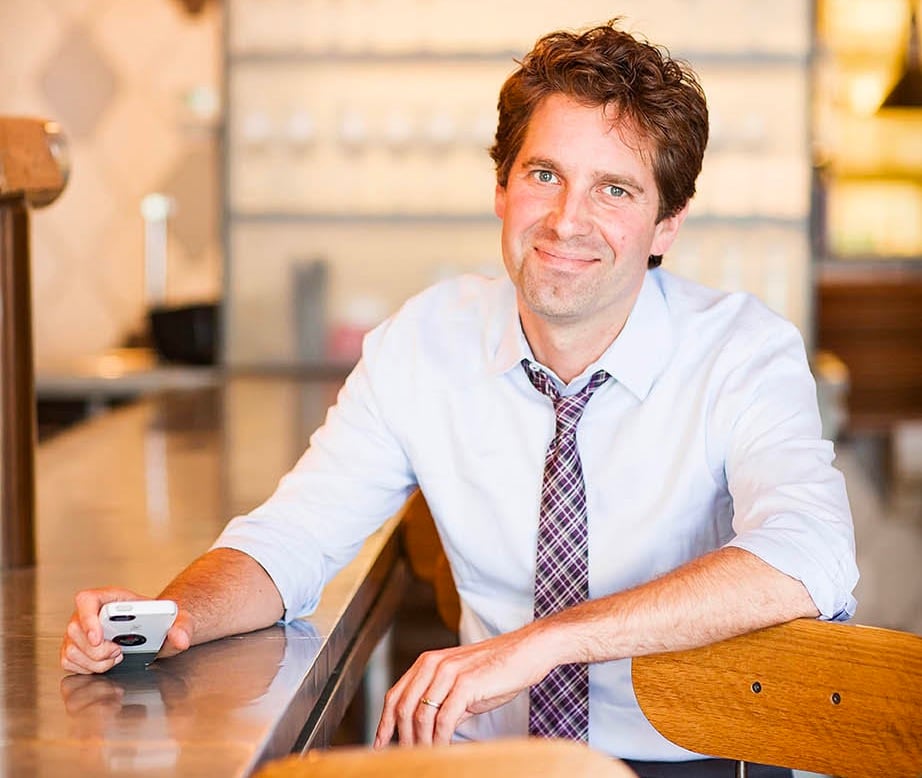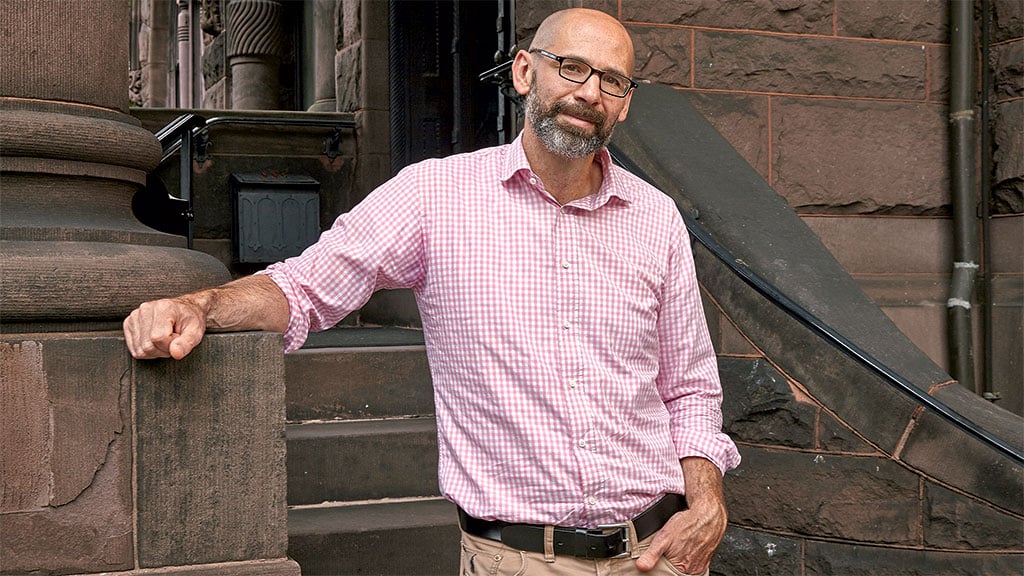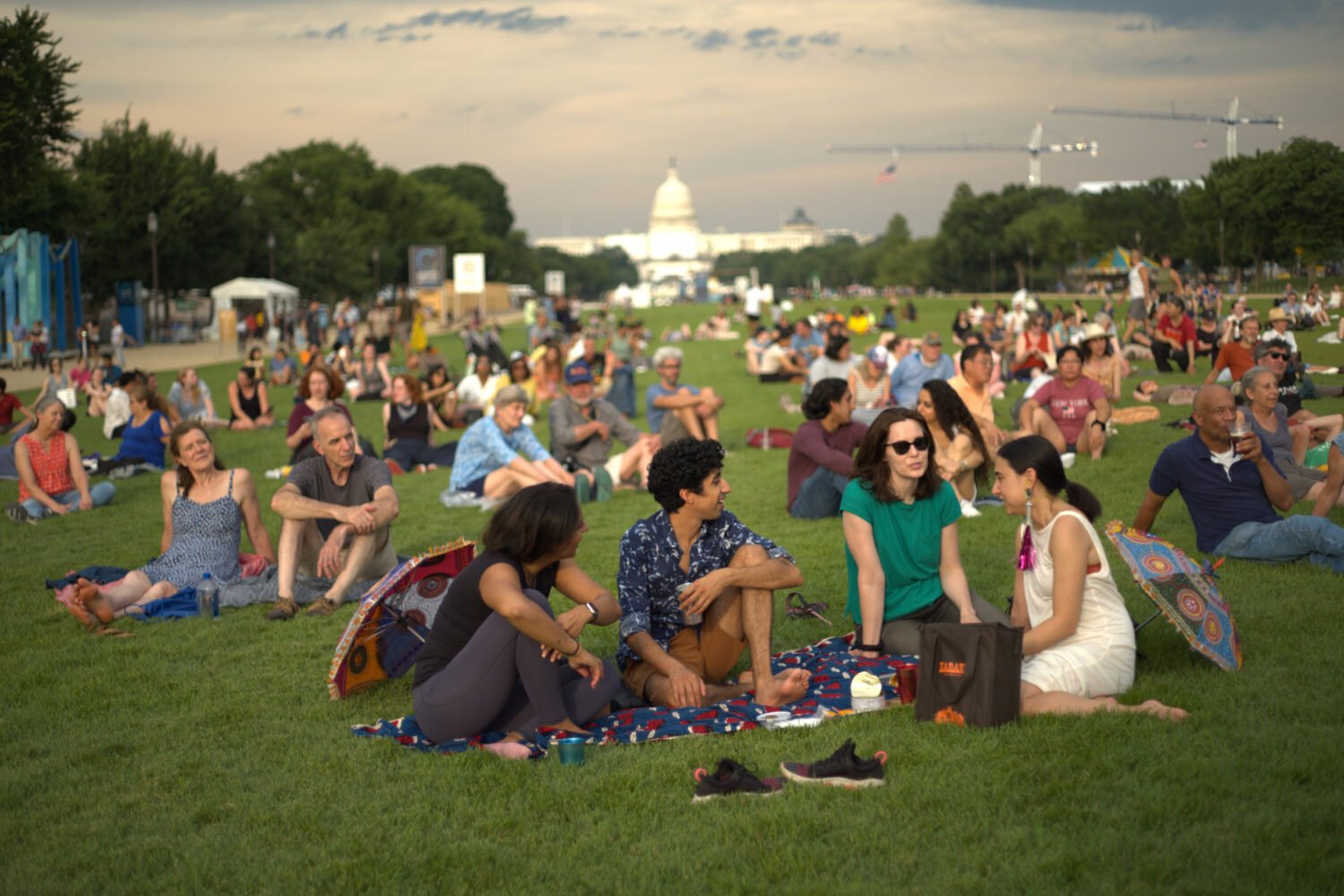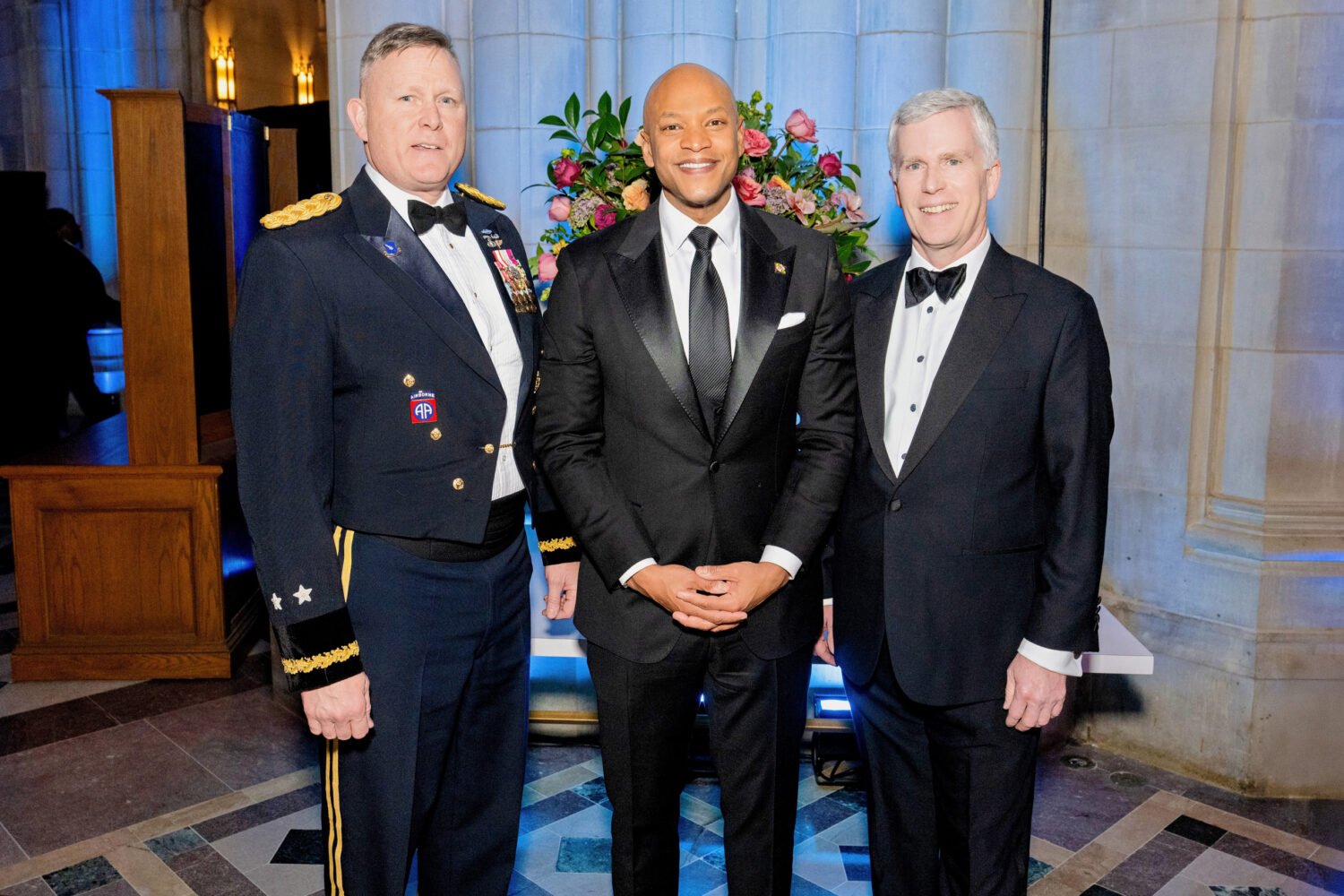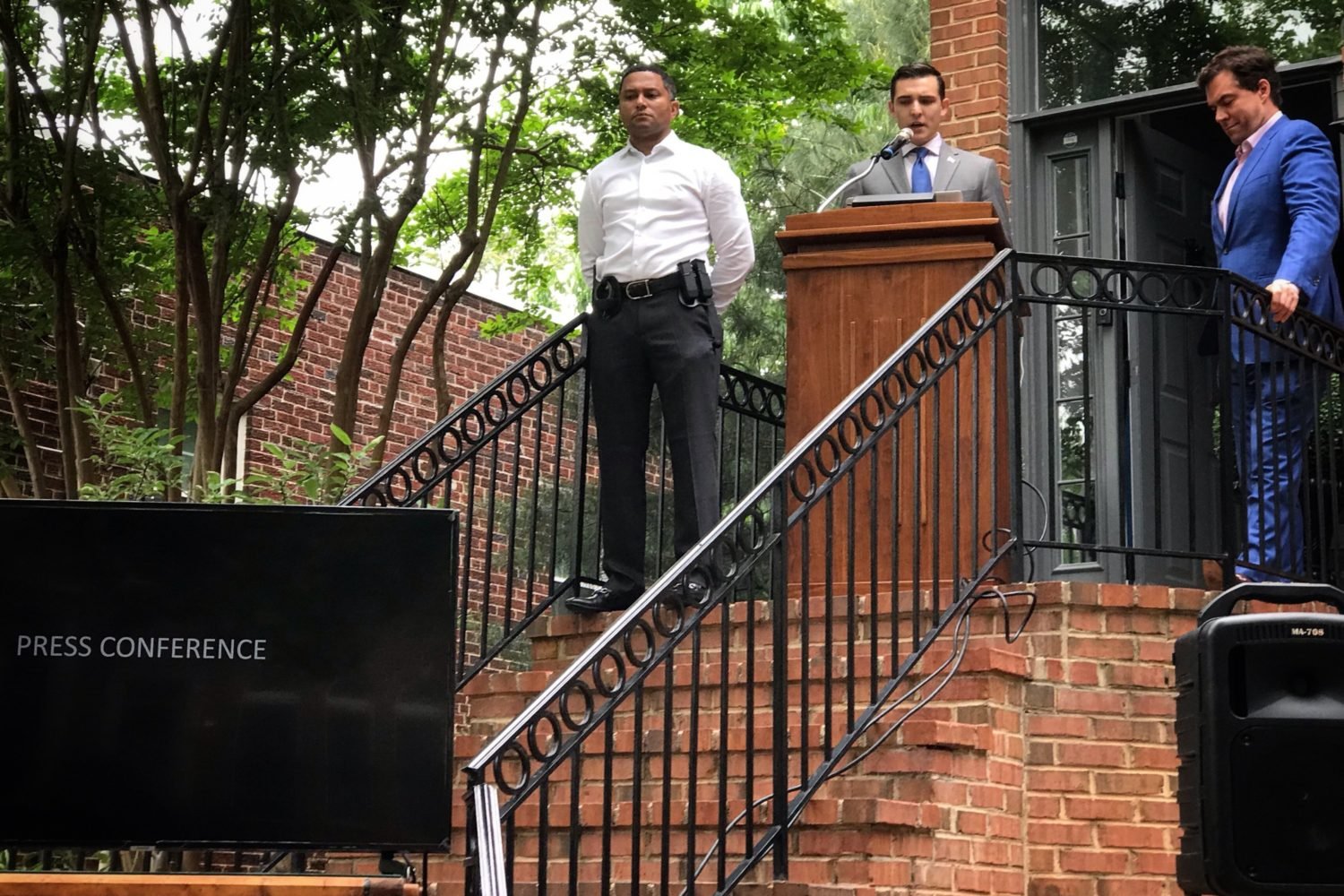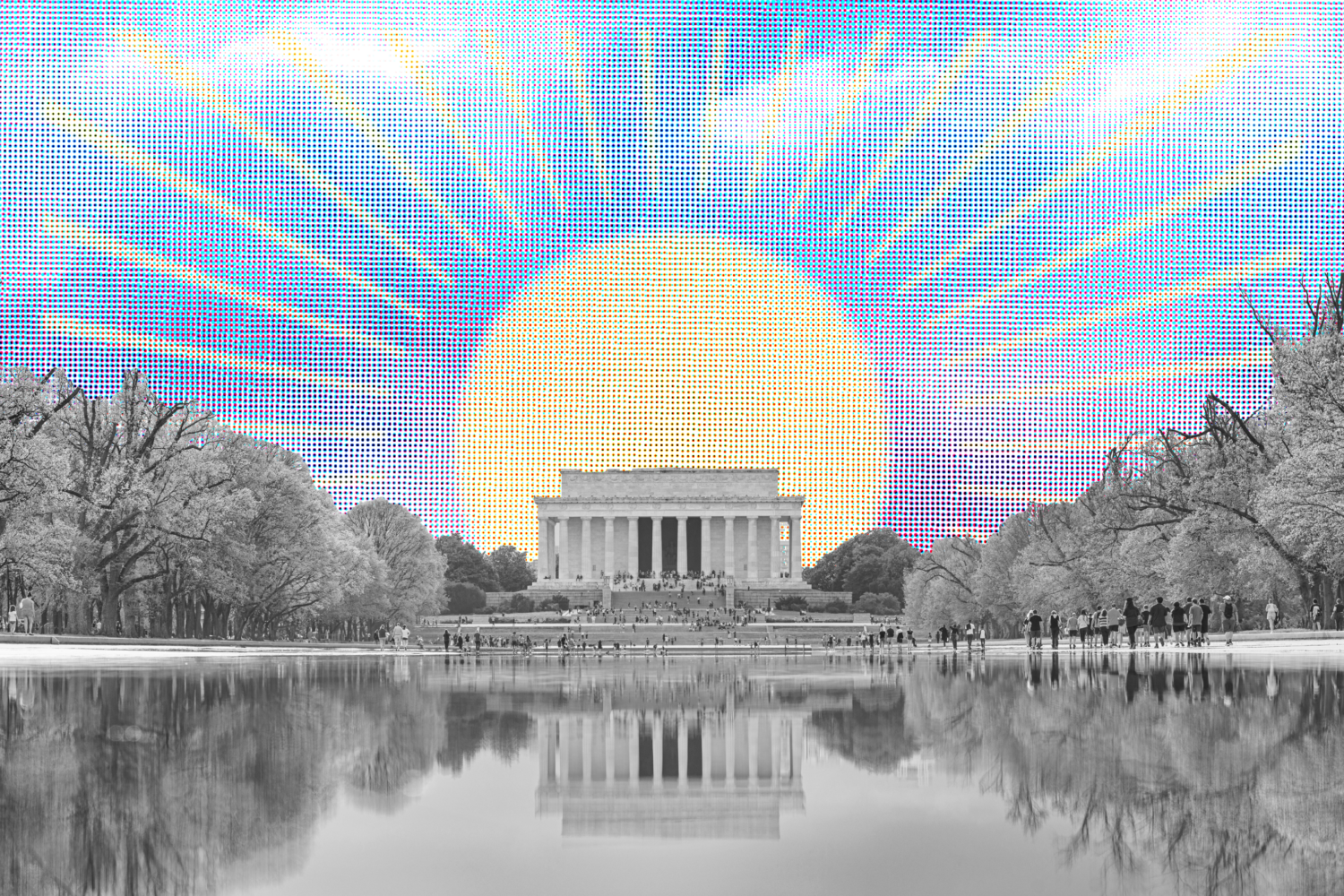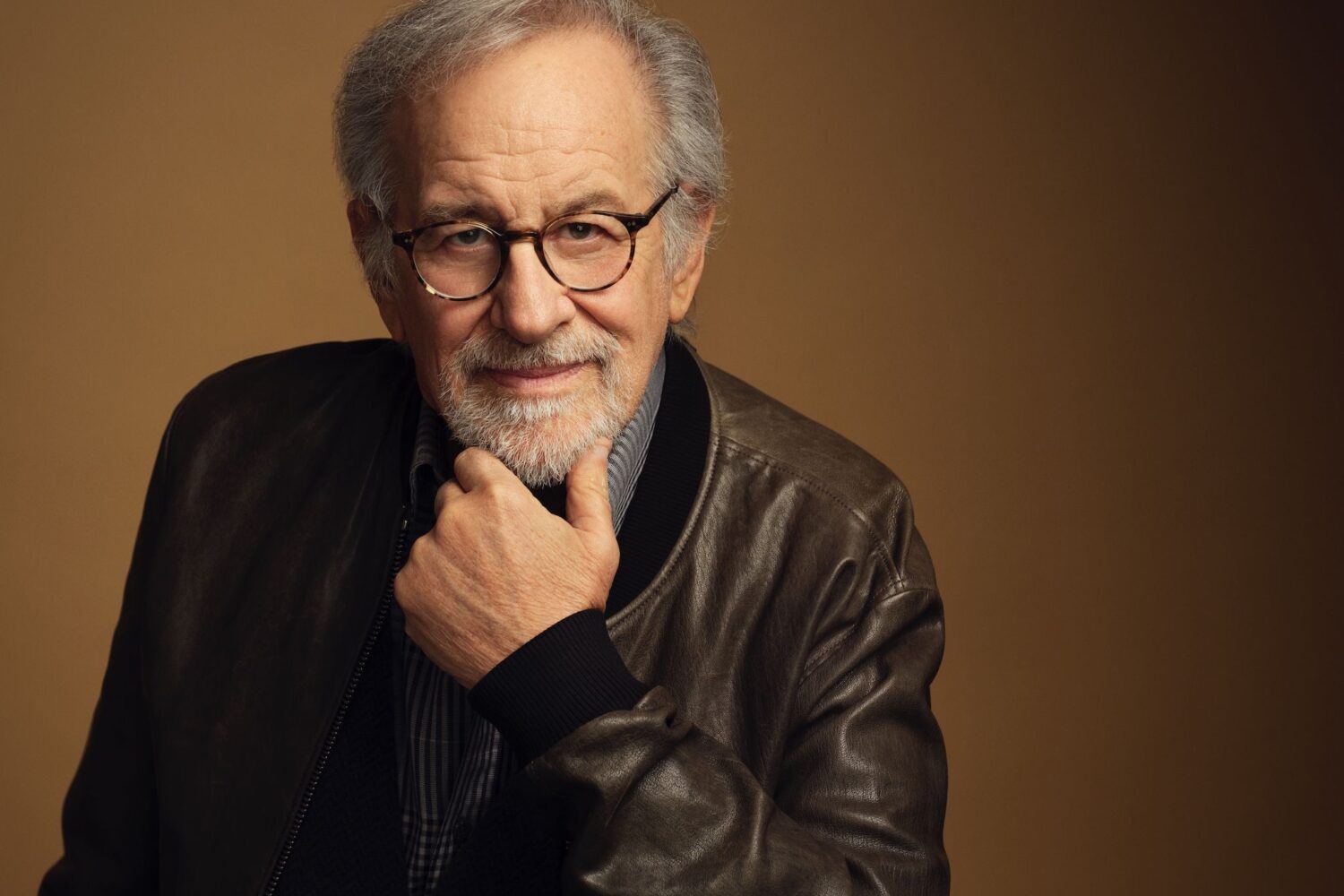Podcasts are a “mediocre method for conveying information,” says David Plotz. “You’d never want to learn about the city’s budget in a podcast.” Plotz and I are discussing his new company, which makes podcasts that cover cities.
City Cast DC, which officially launched Monday, is the newest offering from City Cast, which already has outposts in Chicago, Denver, Houston, among other points on the US map. Each is paired with a newsletter; DC’s went online in June, alongside a soft launch of the company’s Washington podcast. Now both will drop each weekday at 6 AM.
Podcasts may not be terrific at eye-glazing stories about cities’ master plans for development, Plotz says, but they’re quite good at conveying the feel of living somewhere. “We’re trying to lean into the strength of podcasting,” he says. “It’s an emotional medium that makes people feel connected to things.” Plotz has firsthand experience with the medium–he still co-hosts Slate’s Political Gabfest, a gig he held even after he stepped down as the publication’s editor in 2014.
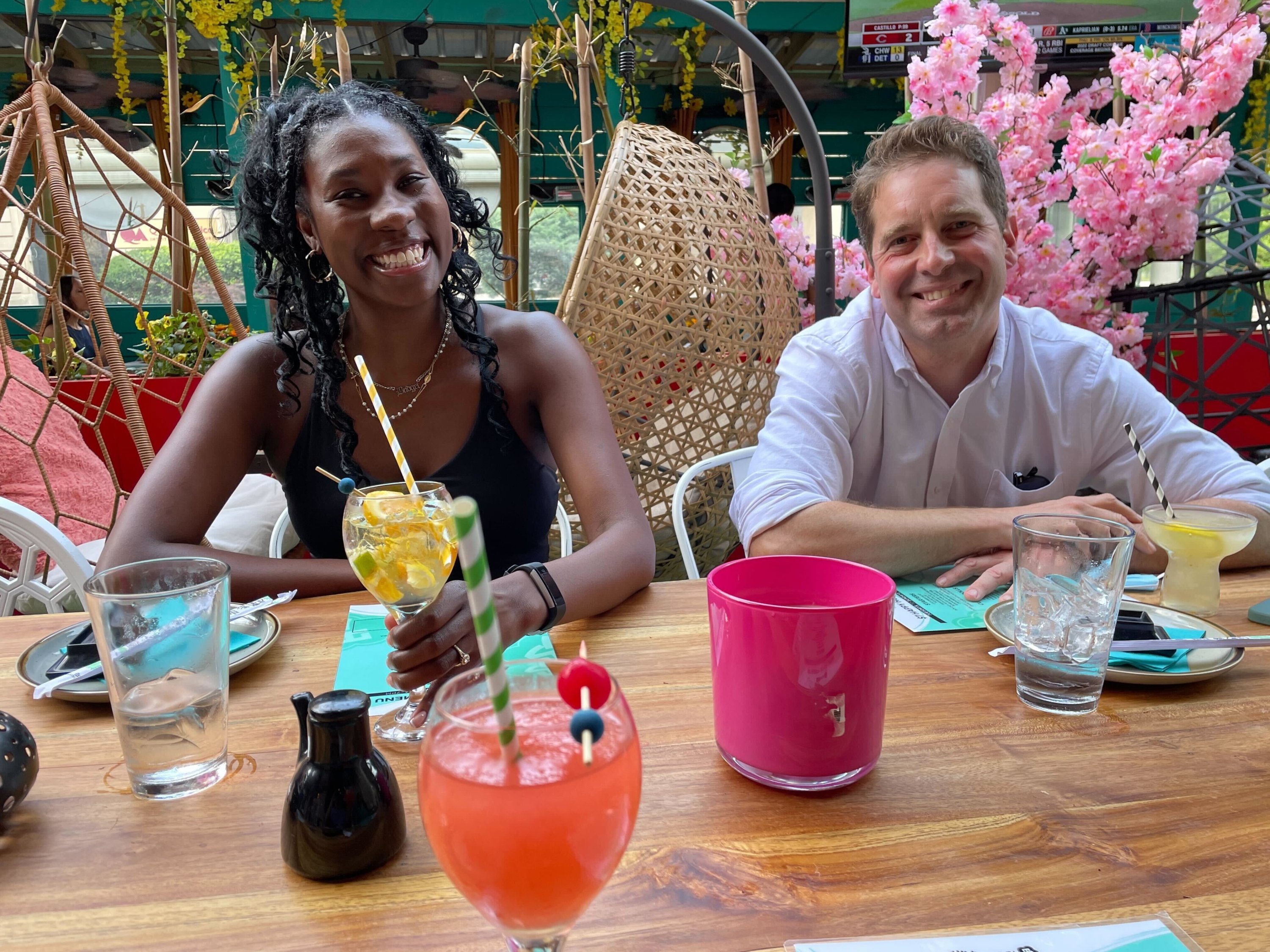
Plotz subsequently traded his editor’s pencil for an entrepreneur’s laser pointer, helping to build Atlas Obscura from a quirky travelogue website into a travel experience company. He left the company in 2020 after it joined forces with Airbnb. Plotz is a “wonderful person to lead this business,” says Tim O’Shaughnessy, the president and CEO of the Graham Holdings Company, which added City Cast to its wide-ranging portfolio of businesses during the pandemic. “He understands our company and how we think and our culture.”
That’s the context in which the podcast company finds itself a corporate cousin to Framebridge, three car dealerships, and the Clyde’s Restaurant Group, among many other Graham Holdings holdings: “We try to be good homes for businesses that want to build something over a long period of time,” O’Shaughnessy says.
Plotz says he looks for hosts “who love their city more than anyone else and think it’s more fucked up than anyone else does and can convey that in conversation every day.” In DC, the marquee hosts are Bridget Todd, who also hosts the podcast There Are No Girls on the Internet, as well as Politico columnist (and former Washingtonian editor) Michael Schaffer. During City Cast DC‘s soft launch, its team has produced episodes about the failure of the Whittle School, the charms of Crispus Attucks Park, and rats. The vibe is a bit reminiscent of the New York Times‘s The Daily: One big story, often told by a person who reported it, followed by some headlines.
“We’re not trying to be the deep information source,” Plotz says. “It’s much more trying to be a useful toolbox for you as a citizen. The podcast will help you feel more connected to Washington, and the newsletter will give you the tools to be connected,” whether that’s tips on recycling a mattress or how to help refugees from Afghanistan. Its footprint is lean: Todd and Schaffer are part-time employees; City Cast’s full-timers in DC include lead producer Priyanka Tilve, newsletter writer Kaela Cote-Stemmermann, and producer Julia Karron. Hosting duties are “a bit mosaic-like,” Plotz says: he and Tilve will both rock the mic as well.
Tilve came to the company after seven years at Al-Jazeera, hungry for work that connects with the everyday lives of its audience. City Cast DC‘s editorial mission, she says, is “a balance of harder news stories and more culture-related stories that will leave people feeling like they’re proud to be here.” Friends told her an episode she hosted earlier this month about how homeless people try to beat DC summer heat offered them a perspective they hadn’t heard before and made them more empathetic—exactly the type of emotional connection City Cast seeks.
One important directive for the entire City Cast network: Make sure the guests represent the diversity of this region. Tilve says the team asks each guest to take a brief survey about their neighborhood and how they identify, race and gender-wise. They track that demographic data about guests for an ongoing audit to make sure the show’s sources are diverse.
That’s especially important because the “DC” in the company’s name doesn’t limit its ambit to the District: The Virginia and Maryland suburbs are fair game as well. “A lot of our team live in Northwest,” Tilve allows, which she says makes it all the more important that they seek out voices from other parts of the city and region. Community tips will be vital: The Crispus Attucks Park story, for example, stemmed from an email sent by a member of the park’s board. “I think a thing like this is a civic service,” Schaffer says. “This is not a replacement for local media. It does give a chance to highlight a thing that everyone is or should be talking about.”
Indeed, Plotz says, “we come to play nice and be good partners.” The podcast will feature reporters from other outlets talking about big stories, and the newsletter takes care to link directly to articles produced by other newsrooms.
Which brings us to a possibly sticky situation: Arlington-based Axios, for example, has also poured resources into developing local media outlets, launching advertising-supported newsletters in dozens of locales. What’s to prevent another company from elbowing its way into City Cast’s business plan? “Nothing,” says O’Shaughnessy, except that launching a podcast network “is not the easiest thing. Sometimes things that are hard provide some defensibility.” (Plotz says the company has “talked to more podcast producers than anyone on the planet at this point.”)
The company’s products will be ad-supported, though there’s no ad-sales team in place yet. Plotz says he’s been pleasantly surprised that some advertisers have come in over the transom, leading him to conclude “there’s a real hunger for this.” O’Shaughnessy concurs: Streaming audio has replicated a lot of what attracted audiences to radio, but “local is one area where it really hasn’t.”
The knock against building digital businesses for local news is that they don’t reach enough people to make up for digital ad rates being much lower than what traditional media charges. That’s a more manageable issue for City Cast because the ad rates for streaming audio are higher than the typical cost of display advertising on a website. Newsletters are inexpensive to produce, Plotz says, and “if you can get decent ads in them the economics start to work.” In two to three years, they say, they’ll know if this business is sustainable.
Monday’s episode kicked off with a talky question: If DC were to build a Mount Rushmore-type memorial, whose giant heads should grace the mountaintop? It’s the type of debate perfect for an audience of people who care about local news. “Cities that are kind of patriotic about themselves,” Plotz says, “tend to be good markets for us.”

